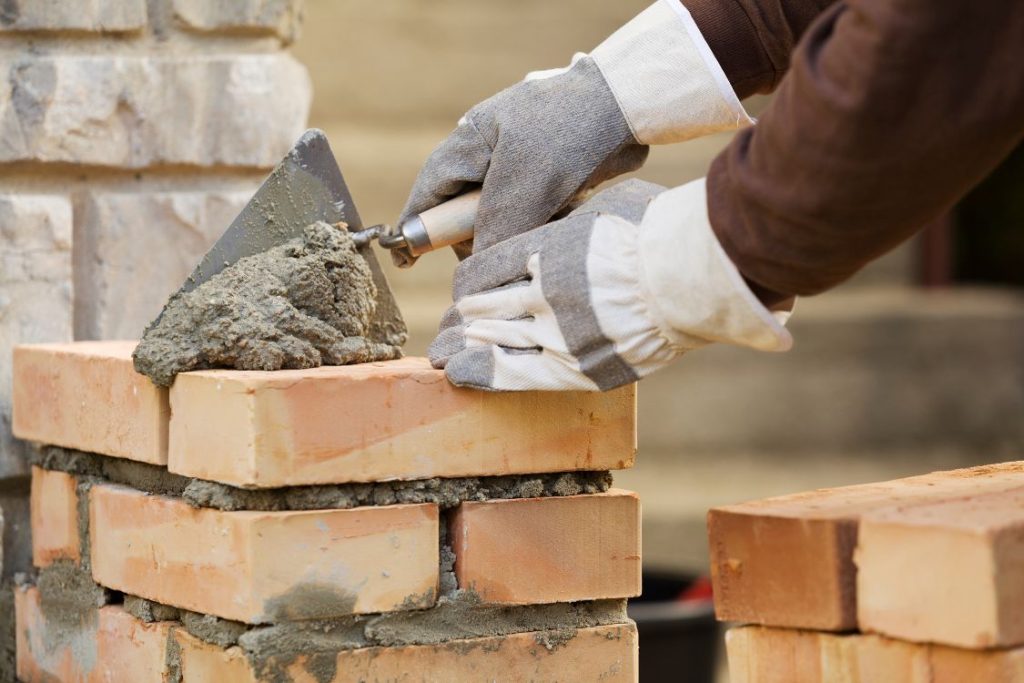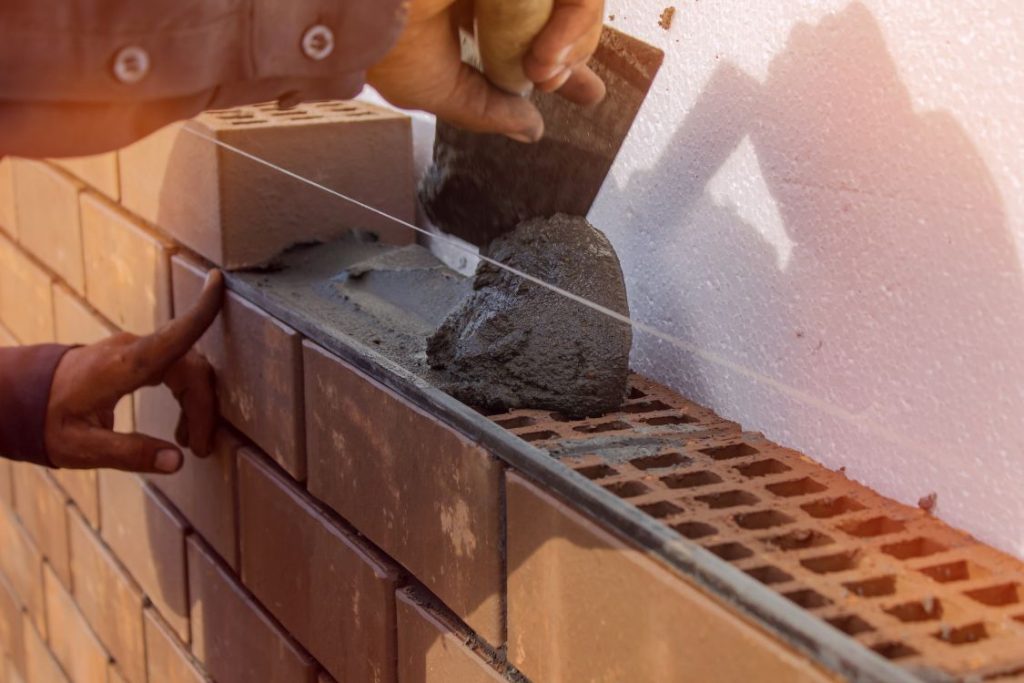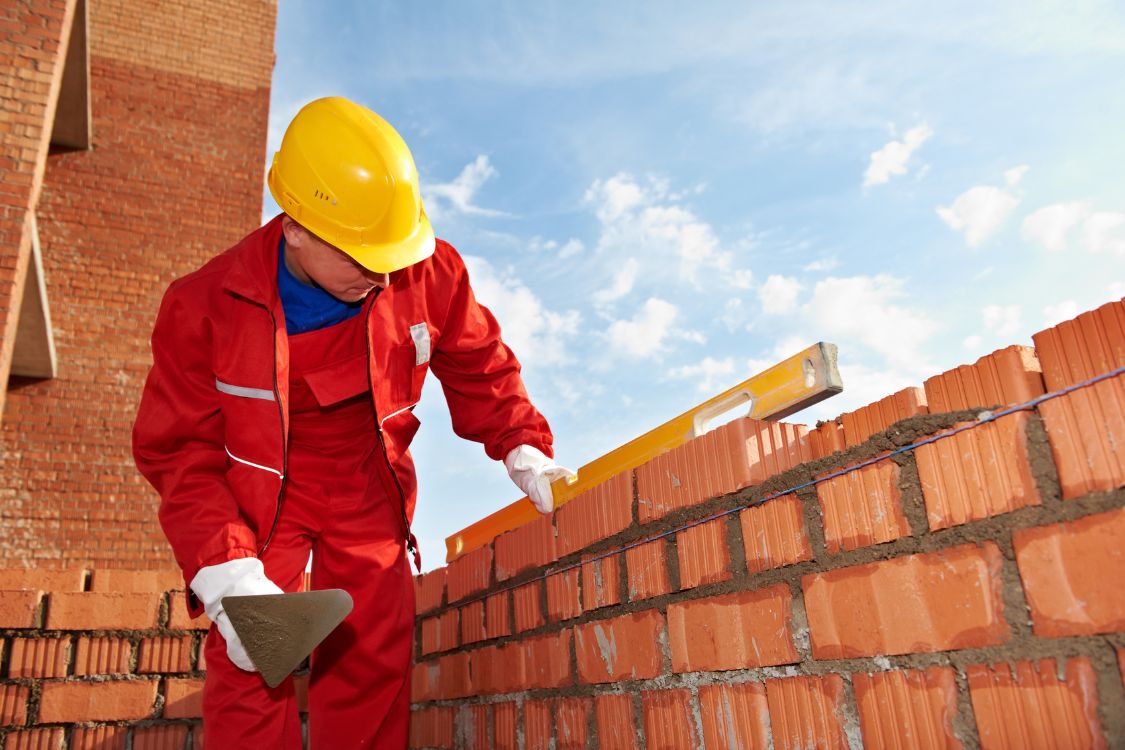Is bricklaying a skill or an art form? With the right guidance, it becomes both. Achieving skill mastery through a Bricklaying NVQ paves a structured path from novice to expert. This qualification not only verifies proficiency in essential techniques, methods, and standards but also provides a recognised benchmark for career advancement in construction. Explore the progression through the distinct levels of Bricklaying NVQ and discover how each step enhances your capabilities and potential within the industry. Delve into this comprehensive guide and learn how to transform your understanding of bricklaying into certified expertise.
Understanding Bricklaying NVQ Levels
National Vocational Qualifications (NVQs) serve as a benchmark for competency in various trades, including bricklaying. These qualifications are structured to ensure that individuals meet the National Occupational Standards required for their roles. NVQs in bricklaying are segmented into multiple levels, each catering to different stages of skill development and career progress. The progression begins with foundational knowledge and culminates in advanced expertise, allowing individuals to build their competencies systematically.
- Level 1: This is the Foundation Level, which typically involves ten to twenty days of training. It focuses on introducing basic bricklaying techniques and foundational skills necessary for entry-level positions in the construction industry.
- Level 2: Designed for those starting their career as bricklayers or for experienced individuals seeking formal qualifications. It covers more detailed aspects of bricklaying, ensuring participants can perform tasks to industry standards.
- Level 3: This diploma is more comprehensive and time-consuming than Level 2. It prepares individuals for supervisory roles, focusing on advanced bricklaying techniques and management skills necessary for overseeing projects.
- Level 4: Aimed at those who are looking to specialise further within the industry. This level involves strategic planning and project management, equipping candidates with the skills needed for high-level roles.
Progressing through these NVQ levels offers significant benefits. Each level builds upon the previous one, enhancing the knowledge and skills required to excel as a professional bricklayer. As individuals advance, they increase their employability, opening doors to supervisory and specialised roles. This structured pathway not only validates their skills but also provides a clear trajectory for career advancement within the construction sector.
Enrolling in a Bricklaying NVQ Course
Prospective students looking to enrol in a bricklaying NVQ course must fulfil certain criteria to ensure a successful application. Primarily, candidates need to be actively employed as bricklayers or have consistent access to a construction site to complete the necessary Onsite Assessment and Training (OSAT). This practical component is crucial, as it allows students to apply theoretical knowledge in a real-world setting. Furthermore, registration involves submitting personal details to the NOCN_CSkills Awards, a leading awarding body in the construction industry, which ensures that the qualifications are recognised nationally.
- Provide personal details for registration with NOCN_CSkills Awards.
- Select an accredited training provider that offers the NVQ course.
- Confirm eligibility for the OSAT by ensuring access to a construction site.
The City & Guilds organisation plays a significant role in the accreditation process for bricklaying NVQ courses. Known for their rigorous standards and comprehensive curriculum, City & Guilds ensures that the courses meet industry requirements and provide students with up-to-date skills. Their qualifications are widely respected, offering students the confidence that their certification will be valued by employers across the construction sector. Engaging in a City & Guilds accredited NVQ course not only enhances a bricklayer’s professional credibility but also opens doors to further career development opportunities.
Assessment and Certification Process for Bricklaying NVQ

The assessment for the Bricklaying NVQ is meticulously crafted to ensure that candidates meet the National Occupational Standards. What forms the basis of the assessment criteria? The evaluation is grounded in performance and knowledge statements, ensuring a robust measure of a candidate’s capabilities. To achieve the qualification, candidates must complete a minimum of six units, incorporating five mandatory units and at least one optional one. This comprehensive approach guarantees that all key aspects of bricklaying are covered, equipping candidates with the essential skills needed for the industry.
Assessors play a pivotal role in the NVQ brickwork assessment. Who conducts these assessments? Qualified brickwork assessors are responsible for evaluating candidates. Their expertise ensures that the assessments are fair, thorough, and aligned with the necessary standards. These assessors not only evaluate the practical skills of the candidates but also ensure that the theoretical understanding is up to par. Their role involves providing feedback and guidance, helping candidates to refine their skills and achieve the requisite standards for certification.
The certification process culminates once candidates have successfully met all assessment requirements. How is certification achieved? Following successful completion of all units and assessments, candidates are awarded their NVQ certification. This certification serves as a formal recognition of their skills and knowledge, significantly enhancing their professional credibility in the construction sector. The certification not only validates their expertise but also sets the stage for further career advancement.
On-Site and Remote Assessment Options
Candidates have the flexibility to choose between on-site and remote assessments. What’s the difference between these options? On-site assessments involve assessors visiting the candidate’s workplace to evaluate their skills in a real-world environment. Conversely, remote assessments utilise video links, where candidates present their work and engage in a Professional Discussion with an assessor. This discussion helps gather evidence of competencies, allowing for a comprehensive evaluation. Both methods require candidates to provide supporting evidence, such as photographs or videos, to substantiate their skills and ensure a thorough assessment process.
Cost and Duration of a Bricklaying NVQ
The financial and time commitments for achieving a Bricklaying NVQ are key considerations for prospective candidates. How much does the assessment portfolio cost? The assessment portfolio comes at a cost of £800. The total time required to complete the qualification is 670 hours, which encompasses at least 334 guided learning hours. Are there any funding options available? Eligible candidates may have access to government-funded options, potentially easing the financial burden. This structure allows candidates to plan their education journey effectively, balancing work and study commitments.
| Expense | Details |
|---|---|
| Assessment Portfolio | £800 |
| Funding Options | Government-funded options may be available for eligible candidates |
| Duration | 670 hours total, with at least 334 guided learning hours |
Career Opportunities with a Bricklaying NVQ
What entry-level opportunities are available with a Bricklaying NVQ? Individuals who complete the Bricklaying NVQ Level 2 have a robust foundation to enter the construction industry as qualified bricklayers. This qualification not only validates their skills but also provides them with the eligibility to apply for the Blue CSCS Card, a key credential for site access in the UK. The fast-track remote assessment option enhances accessibility, ensuring that qualified bricklayers can quickly commence their professional journeys. With these qualifications, individuals are well-prepared to perform essential tasks on construction sites, contributing effectively to various building projects.
- Site Management: Progression to the Level 6 Construction Site Management qualification enables bricklayers to oversee entire construction projects, ensuring efficiency and quality control.
- Occupational Work Supervision: The Level 3 Occupational Work Supervision NVQ equips candidates with supervisory skills, preparing them for roles that involve managing teams and ensuring the adherence to safety and quality standards.
- Advanced Bricklaying: The Level 3 Bricklaying qualification provides advanced skills and techniques, allowing bricklayers to take on more complex projects and specialise in areas such as ornate brickwork or restoration.
How does continuous professional development benefit bricklayers? Continuous professional development is crucial for maintaining competitiveness in the construction industry. By advancing through higher NVQ levels and engaging in ongoing training, bricklayers can expand their skill sets and increase their marketability. This ongoing education opens up opportunities for career advancement, allowing individuals to take on more challenging roles and responsibilities. As the construction sector evolves, those committed to lifelong learning are better positioned to adapt to new technologies and methodologies, ensuring sustained professional growth and success.
Reviews and Testimonials from Bricklaying NVQ Participants

Participant feedback is invaluable for understanding the real-world impact of Bricklaying NVQ courses. How do participants describe their experiences? Testimonials consistently highlight the exceptional quality of teaching, supportive instructors, and the welcoming atmosphere at training centres such as Abel Skills. Such feedback underscores the recognition these courses receive for their effectiveness in skill development and professional growth. Notably, providers like SuperSkills have successfully qualified over 6,000 individuals since 2006, reflecting their commitment to excellence in training delivery.
- “The teaching quality was outstanding. The instructors were not only knowledgeable but also approachable and supportive, making the learning process enjoyable.”
- “Having such supportive instructors made all the difference. Their guidance and encouragement helped me gain confidence in my bricklaying skills.”
- “The atmosphere at Abel Skills was incredibly welcoming. It felt like a community where everyone was eager to learn and grow together.”
Final Words
Exploring the Bricklaying NVQ system reveals the structured pathway from foundational learning at Level 1 to advanced competencies at Level 4.
Potential candidates must meet specific criteria for enrollment, with City & Guilds playing a pivotal role in accreditation.
Assessment involves performance evaluation and professional discussions, covering mandatory and optional units for qualification.
Obtaining a Bricklaying NVQ demands financial and time investments, yet government funding can mitigate costs for eligible learners.
This qualification opens doors to career advancement, enhanced skills, and professional development, supported by positive participant testimonials.
Embracing a Bricklaying NVQ can significantly impact one’s career trajectory and skill set positively.

Reginald Harper owner of this blog, He created this website many year before to share his experience. He is writer and he writes the topic all about social Anxiety and many more.

